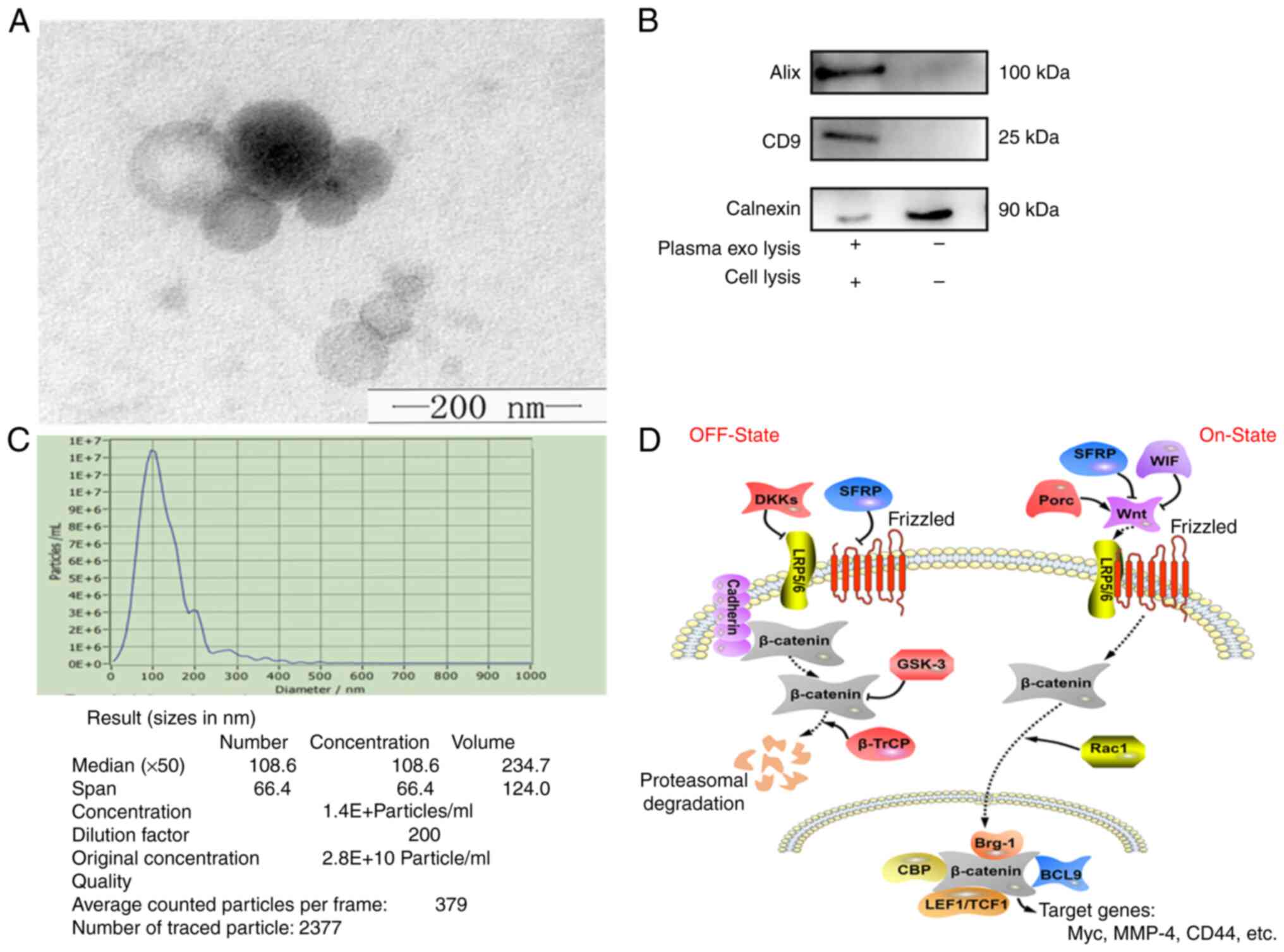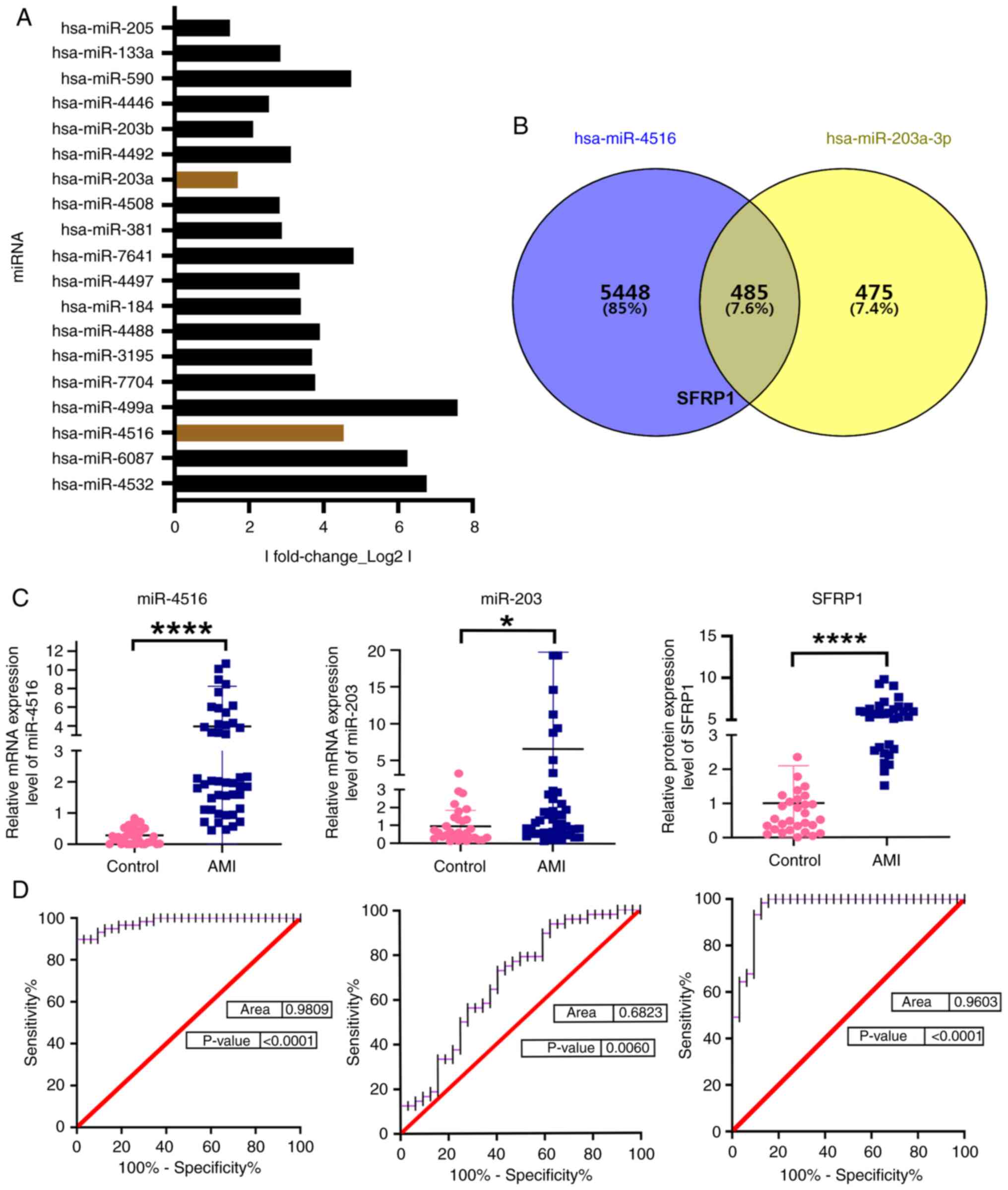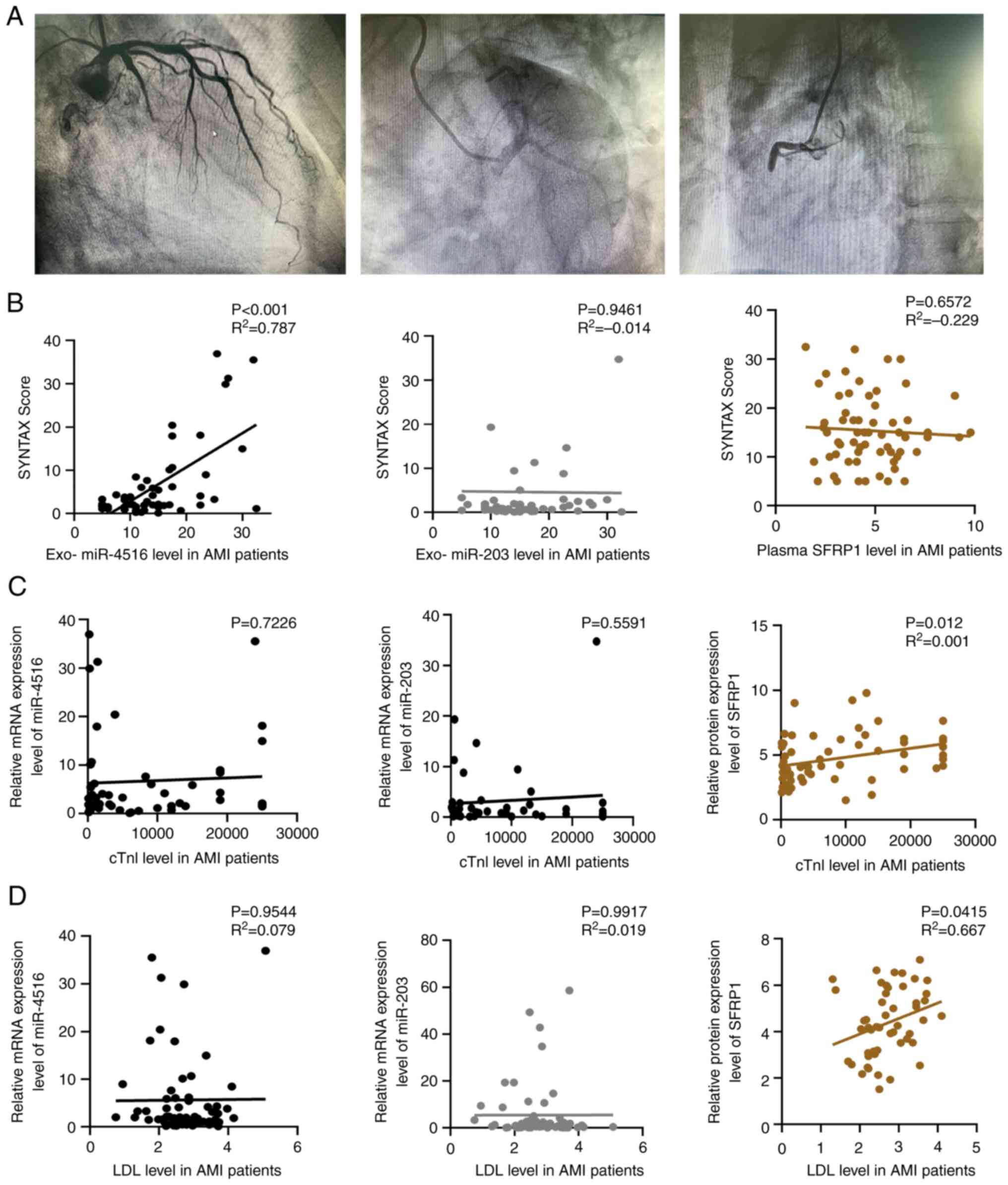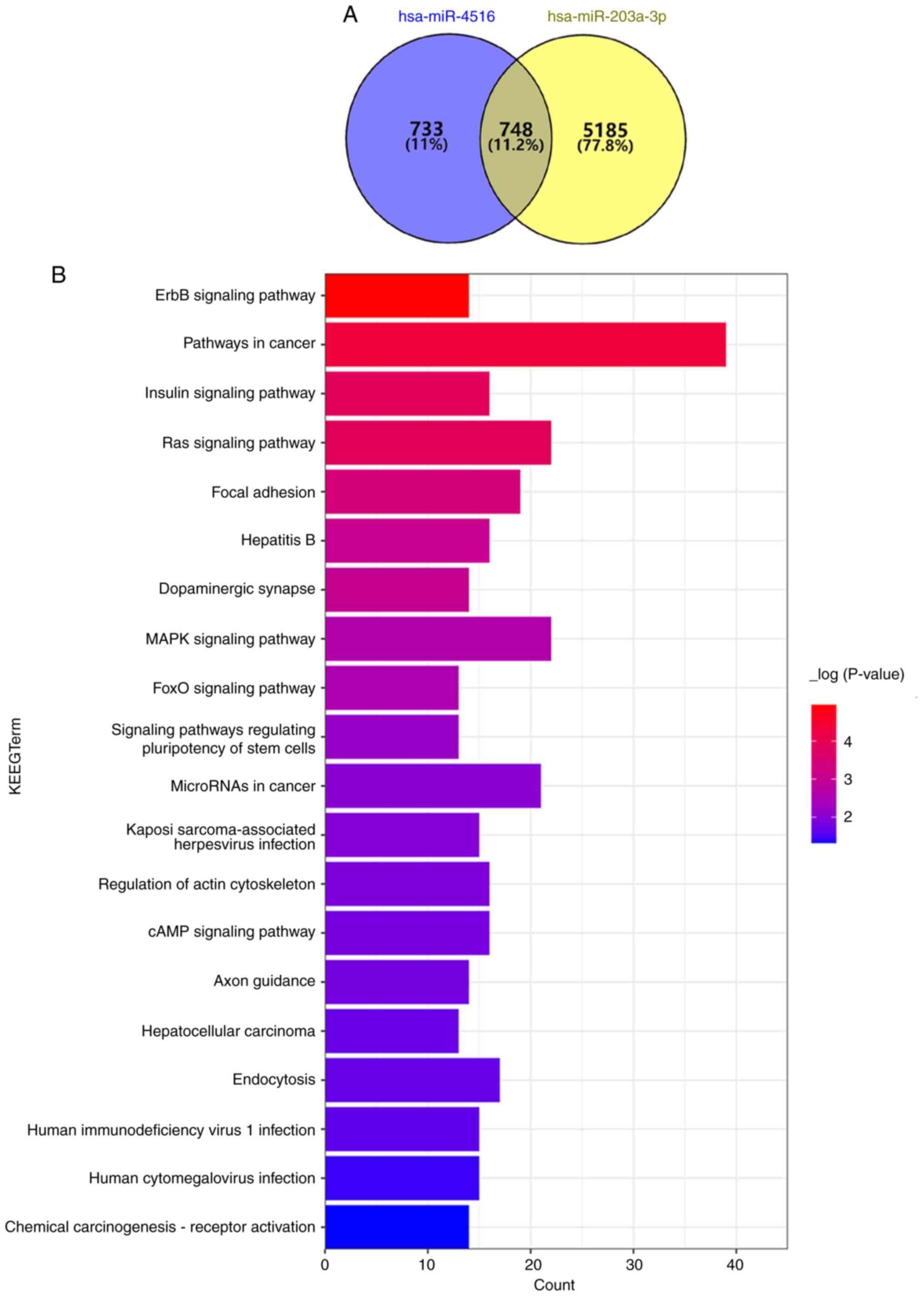|
1
|
Zhao D, Liu J, Wang M, Zhang X and Zhou M:
Epidemiology of cardiovascular disease in China: Current features
and implications. Nat Rev Cardiol. 16:203–212. 2019. View Article : Google Scholar : PubMed/NCBI
|
|
2
|
Ma LY, Chen WW, Gao RL, Liu LS, Zhu ML,
Wang YJ, Wu ZS, Li HJ, Gu DF, Yang YJ, et al: China cardiovascular
diseases report 2018: An updated summary. J Geriatr Cardiol.
17:1–8. 2020.PubMed/NCBI
|
|
3
|
Bhatnagar P, Wickramasinghe K, Wilkins E
and Townsend N: Trends in the epidemiology of cardiovascular
disease in the UK. Heart. 102:1945–1952. 2016. View Article : Google Scholar : PubMed/NCBI
|
|
4
|
Rozenman Y and Gotsman MS: The earliest
diagnosis of acute myocardial infarction. Annu Rev Med. 45:31–44.
1994. View Article : Google Scholar : PubMed/NCBI
|
|
5
|
Menown IB, Allen J, Anderson JM and Adgey
AA: ST depression only on the initial 12-lead ECG: Early diagnosis
of acute myocardial infarction. Eur Heart J. 22:218–227. 2001.
View Article : Google Scholar : PubMed/NCBI
|
|
6
|
Kim SJ, Kim MH, Lee KM, Kim TH, Choi SY,
Son MK, Park JW and Serebruany VL: Troponin I and D-dimer for
discriminating acute pulmonary thromboembolism from myocardial
infarction. Cardiology. 136:222–227. 2017. View Article : Google Scholar : PubMed/NCBI
|
|
7
|
Roongsritong C, Warraich I and Bradley C:
Common causes of troponin elevations in the absence of acute
myocardial infarction: Incidence and clinical significance. Chest.
125:1877–1884. 2004. View Article : Google Scholar : PubMed/NCBI
|
|
8
|
Waters RE II, Singh KP, Roe MT, Lotfi M,
Sketch MH Jr, Mahaffey KW, Newby LK, Alexander JH, Harrington RA,
Califf RM and Granger CB: Rationale and strategies for implementing
community-based transfer protocols for primary percutaneous
coronary intervention for acute ST-segment elevation myocardial
infarction. J Am Coll Cardiol. 43:2153–2159. 2004. View Article : Google Scholar : PubMed/NCBI
|
|
9
|
Pegtel DM and Gould SJ: Exosomes. Annu Rev
Biochem. 88:487–514. 2019. View Article : Google Scholar : PubMed/NCBI
|
|
10
|
Tang YT, Huang YY, Zheng L, Qin SH, Xu XP,
An TX, Xu Y, Wu YS, Hu XM, Ping BH and Wang Q: Comparison of
isolation methods of exosomes and exosomal RNA from cell culture
medium and serum. Int J Mol Med. 40:834–844. 2017. View Article : Google Scholar : PubMed/NCBI
|
|
11
|
Liu Y, Sun Y, Lin X, Zhang D, Hu C, Liu J,
Zhu Y, Gao A, Han H, Chai M, et al: Perivascular adipose-derived
exosomes reduce macrophage foam cell formation through miR-382-5p
and the BMP4-PPARγ-ABCA1/ABCG1 pathways. Vascul Pharmacol.
143:1069682022. View Article : Google Scholar : PubMed/NCBI
|
|
12
|
Zhu J, Liu B, Wang Z, Wang D, Ni H, Zhang
L and Wang Y: Exosomes from nicotine-stimulated macrophages
accelerate atherosclerosis through miR-21-3p/PTEN-mediated VSMC
migration and proliferation. Theranostics. 9:6901–6919. 2019.
View Article : Google Scholar : PubMed/NCBI
|
|
13
|
Zhang J, Li S, Li L, Li M, Guo C, Yao J
and Mi S: Exosome and exosomal microRNA: Trafficking, sorting, and
function. Genomics Proteomics Bioinformatics. 13:17–24. 2015.
View Article : Google Scholar : PubMed/NCBI
|
|
14
|
Ambros V: The functions of animal
microRNAs. Nature. 431:350–355. 2004. View Article : Google Scholar : PubMed/NCBI
|
|
15
|
Mishra S, Yadav T and Rani V: Exploring
miRNA based approaches in cancer diagnostics and therapeutics. Crit
Rev Oncol Hematol. 98:12–23. 2016. View Article : Google Scholar : PubMed/NCBI
|
|
16
|
Turchinovich A, Weiz L, Langheinz A and
Burwinkel B: Characterization of extracellular circulating
microRNA. Nucleic Acids Res. 39:7223–7233. 2011. View Article : Google Scholar : PubMed/NCBI
|
|
17
|
Lu TX and Rothenberg ME: MicroRNA. J
Allergy Clin Immunol. 141:1202–1207. 2018. View Article : Google Scholar : PubMed/NCBI
|
|
18
|
Li Y, Ren S, Xia J, Wei Y and Xi Y:
EIF4A3-Induced circ-BNIP3 aggravated hypoxia-induced injury of H9c2
cells by targeting miR-27a-3p/BNIP3. Mol Ther Nucleic Acids.
19:533–545. 2020. View Article : Google Scholar : PubMed/NCBI
|
|
19
|
Al-Muhtaresh HA, Salem AH and Al-Kafaji G:
Upregulation of circulating cardiomyocyte-enriched miR-1 and
miR-133 associate with the risk of coronary artery disease in type
2 diabetes patients and serve as potential biomarkers. J Cardiovasc
Transl Res. 12:347–357. 2019. View Article : Google Scholar : PubMed/NCBI
|
|
20
|
Ren J, Zhang J, Xu N, Han G, Geng Q, Song
J, Li S, Zhao J and Chen H: Signature of circulating microRNAs as
potential biomarkers in vulnerable coronary artery disease. PLoS
One. 8:e807382013. View Article : Google Scholar : PubMed/NCBI
|
|
21
|
Wiese CB, Zhong J, Xu ZQ, Zhang Y, Ramirez
Solano MA, Zhu W, Linton MF, Sheng Q, Kon V and Vickers KC: Dual
inhibition of endothelial miR-92a-3p and miR-489-3p reduces renal
injury-associated atherosclerosis. Atherosclerosis. 282:121–131.
2019. View Article : Google Scholar : PubMed/NCBI
|
|
22
|
Stone GW, Sabik JF, Serruys PW, Simonton
CA, Généreux P, Puskas J, Kandzari DE, Morice MC, Lembo N, Brown WM
III, et al: Everolimus-eluting stents or bypass surgery for left
main coronary artery disease. N Engl J Med. 375:2223–2235. 2016.
View Article : Google Scholar : PubMed/NCBI
|
|
23
|
Suh YJ, Hong YJ, Lee HJ, Hur J, Kim YJ,
Lee HS, Hong SR, Im DJ, Kim YJ, Park CH, et al: Prognostic value of
SYNTAX score based on coronary computed tomography angiography. Int
J Cardiol. 199:460–466. 2015. View Article : Google Scholar : PubMed/NCBI
|
|
24
|
Clevers H and Nusse R: Wnt/β-catenin
signaling and disease. Cell. 149:1192–1205. 2012. View Article : Google Scholar : PubMed/NCBI
|
|
25
|
Liu Y, Almeida M, Weinstein RS, O'Brien
CA, Manolagas SC and Jilka RL: Skeletal inflammation and
attenuation of Wnt signaling, Wnt ligand expression, and bone
formation in atherosclerotic ApoE-null mice. Am J Physiol
Endocrinol Metab. 310:E762–E773. 2016. View Article : Google Scholar : PubMed/NCBI
|
|
26
|
Torres VI, Godoy JA and Inestrosa NC:
Modulating Wnt signaling at the root: Porcupine and Wnt acylation.
Pharmacol Ther. 198:34–45. 2019. View Article : Google Scholar : PubMed/NCBI
|
|
27
|
Zhang L and Wrana JL: The emerging role of
exosomes in Wnt secretion and transport. Curr Opin Genet Dev.
27:14–19. 2014. View Article : Google Scholar : PubMed/NCBI
|
|
28
|
Yang Y and Mlodzik M: Wnt-Frizzled/planar
cell polarity signaling: Cellular orientation by facing the wind
(Wnt). Annu Rev Cell Dev Biol. 31:623–646. 2015. View Article : Google Scholar : PubMed/NCBI
|
|
29
|
Tsutsumi N, Mukherjee S, Waghray D, Janda
CY, Jude KM, Miao Y, Burg JS, Aduri NG, Kossiakoff AA, Gati C and
Garcia KC: Structure of human Frizzled5 by fiducial-assisted
cryo-EM supports a heterodimeric mechanism of canonical Wnt
signaling. Elife. 9:e584642020. View Article : Google Scholar : PubMed/NCBI
|
|
30
|
Kobayashi K, Luo M, Zhang Y, Wilkes DC, Ge
G, Grieskamp T, Yamada C, Liu TC, Huang G, Basson CT, et al:
Secreted Frizzled-related protein 2 is a procollagen C proteinase
enhancer with a role in fibrosis associated with myocardial
infarction. Nat Cell Biol. 11:46–55. 2009. View Article : Google Scholar : PubMed/NCBI
|
|
31
|
Barandon L, Casassus F, Leroux L, Moreau
C, Allières C, Lamazière JM, Dufourcq P, Couffinhal T and Duplàa C:
Secreted frizzled-related protein-1 improves postinfarction scar
formation through a modulation of inflammatory response.
Arterioscler Thromb Vasc Biol. 31:e80–e87. 2011. View Article : Google Scholar : PubMed/NCBI
|
|
32
|
Sassi Y, Avramopoulos P, Ramanujam D,
Grüter L, Werfel S, Giosele S, Brunner AD, Esfandyari D,
Papadopoulou AS, De Strooper B, et al: Cardiac myocyte miR-29
promotes pathological remodeling of the heart by activating Wnt
signaling. Nat Commun. 8:16142017. View Article : Google Scholar : PubMed/NCBI
|
|
33
|
Liu J, Zheng X, Zhang C, Zhang C and Bu P:
Lcz696 alleviates myocardial fibrosis after myocardial infarction
through the sFRP-1/Wnt/β-catenin signaling pathway. Front
Pharmacol. 12:7241472021. View Article : Google Scholar : PubMed/NCBI
|
|
34
|
Liu P, Wang S, Wang G, Zhao M, Du F, Li K,
Wang L, Wu H, Chen J, Yang Y and Su G: Macrophage-derived exosomal
miR-4532 promotes endothelial cells injury by targeting SP1 and
NF-κB P65 signalling activation. J Cell Mol Med. 26:5165–5180.
2022. View Article : Google Scholar : PubMed/NCBI
|
|
35
|
Alpert JS, Thygesen K, Antman E and
Bassand JP: Myocardial infarction redefined-a consensus document of
the joint european society of cardiology/American college of
cardiology committee for the redefinition of myocardial infarction.
J Am Coll Cardiol. 36:959–969. 2000. View Article : Google Scholar : PubMed/NCBI
|
|
36
|
Saraiva JFK and Franco D: Oral GLP-1
analogue: Perspectives and impact on atherosclerosis in type 2
diabetic patients. Cardiovasc Diabetol. 20:2352021. View Article : Google Scholar : PubMed/NCBI
|
|
37
|
Biagini A, Testa R, Carpeggiani C,
Andreotti F, Mazzei MG, Emdin M and L'Abbate A: Detection of
spontaneous episodes in post-infarction angina. Comparison between
CCU and Holter monitoring. Eur Heart J. 7 (Suppl 3):S43–S46. 1986.
View Article : Google Scholar
|
|
38
|
Kundu A, Sardar P, O'Day K, Chatterjee S,
Owan T and Dawn Abbott J: SYNTAX score and outcomes of coronary
revascularization in diabetic patients. Curr Cardiol Rep.
20:282018. View Article : Google Scholar : PubMed/NCBI
|
|
39
|
Théry C, Witwer KW, Aikawa E, Alcaraz MJ,
Anderson JD, Andriantsitohaina R, Antoniou A, Arab T, Archer F,
Atkin-Smith GK, et al: Minimal information for studies of
extracellular vesicles 2018 (MISEV2018): A position statement of
the international society for extracellular vesicles and update of
the MISEV2014 guidelines. J Extracell Vesicles. 7:15357502018.
View Article : Google Scholar : PubMed/NCBI
|
|
40
|
Kalluri R and LeBleu VS: The biology,
function, and biomedical applications of exosomes. Science.
367:eaau69772020. View Article : Google Scholar : PubMed/NCBI
|
|
41
|
Yu X, Rong PZ, Song MS, Shi ZW, Feng G,
Chen XJ, Shi L, Wang CH and Pang QJ: lncRNA SNHG1 induced by SP1
regulates bone remodeling and angiogenesis via sponging miR-181c-5p
and modulating SFRP1/Wnt signaling pathway. Mol Med. 27:1412021.
View Article : Google Scholar : PubMed/NCBI
|
|
42
|
Mafakher L, Rismani E, Rahimi H,
Enayatkhani M, Azadmanesh K and Teimoori-Toolabi L: Computational
design of antagonist peptides based on the structure of secreted
frizzled-related protein-1 (SFRP1) aiming to inhibit Wnt signaling
pathway. J Biomol Struct Dyn. 40:2169–2188. 2022. View Article : Google Scholar : PubMed/NCBI
|
|
43
|
Zhu L, Liu F, Xie H and Feng J: Diagnostic
performance of microRNA-133a in acute myocardial infarction: A
meta-analysis. Cardiol J. 25:260–267. 2018.PubMed/NCBI
|
|
44
|
Xing X, Guo S, Zhang G, Liu Y, Bi S, Wang
X and Lu Q: miR-26a-5p protects against myocardial
ischemia/reperfusion injury by regulating the PTEN/PI3K/AKT
signaling pathway. Braz J Med Biol Res. 53:e91062020. View Article : Google Scholar : PubMed/NCBI
|
|
45
|
Xin Y, Yang C and Han Z: Circulating
miR-499 as a potential biomarker for acute myocardial infarction.
Ann Transl Med. 4:1352016. View Article : Google Scholar : PubMed/NCBI
|
|
46
|
Duijvesz D, Luider T, Bangma CH and
Jenster G: Exosomes as biomarker treasure chests for prostate
cancer. Eur Urol. 59:823–831. 2011. View Article : Google Scholar : PubMed/NCBI
|
|
47
|
Lin B, Tian T, Lu Y, Liu D, Huang M, Zhu
L, Zhu Z, Song Y and Yang C: Tracing tumor-derived exosomal PD-L1
by dual-aptamer activated proximity-induced droplet digital PCR.
Angew Chem Int Ed Engl. 60:7582–7586. 2021. View Article : Google Scholar : PubMed/NCBI
|
|
48
|
Thuijs DJFM, Kappetein AP, Serruys PW,
Mohr FW, Morice MC, Mack MJ, Holmes DR Jr, Curzen N, Davierwala P,
Noack T, et al: Percutaneous coronary intervention versus coronary
artery bypass grafting in patients with three-vessel or left main
coronary artery disease: 10-Year follow-up of the multicentre
randomised controlled SYNTAX trial. Lancet. 394:1325–1334. 2019.
View Article : Google Scholar : PubMed/NCBI
|
|
49
|
Duttagupta S, Thachathodiyl R, Rameshan A,
Venkatachalam A, Georgy S, Ts D and Menon J: Effectiveness of
Framingham and ASCVD risk scores in predicting coronary artery
disease-a comparative study with syntax score. J Assoc Physicians
India. 69:11–12. 2022.PubMed/NCBI
|


















